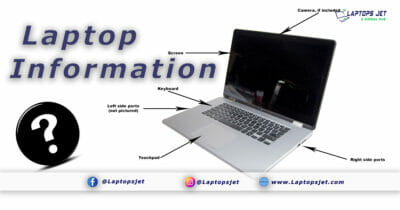Why Does My Laptop Sound Like a Jet Engine

Have you ever wondered why your trusty portable computer emits an otherworldly symphony of sound akin to a roaring fighter jet? The puzzling cacophony that emanates from your beloved device can be perplexing for even the most astute tech enthusiasts. Rest assured, dear reader, for we are about to embark on a thrilling journey of discovery to unravel the enigma behind this peculiar phenomenon.
In the realm of computing, where silicon chips etch intricate pathways of data transfer, an orchestra of miniature components tirelessly performs a complex symphony. Within the heart of our electronic companions, a myriad of electrical impulses race through circuits, propelling information with astonishing speed. But amidst this digital symphony, arises a symphony of another kind – the one that tempts the aural senses, capable of reaching levels seemingly reserved for the heavens.
Like a secret code, deciphering the reason behind this audible spectacle involves navigating through a labyrinth of hardware and software intricacies. As we peel back the layers, we uncover an intricate dance between cooling mechanisms and the relentless demands placed upon our laptops. The rhythmic whirling, akin to a tempest in a teapot, heralds the presence of a protagonist – the cooling system – which valiantly battles to maintain temperatures within safe bounds.
Join us on this odyssey as we delve deeper into the bowels of modern computing, exploring the interplay between heat dissipation and enhanced performance. Brace yourself for a revelation that will transform your perception of this seemingly innocuous, yet necessary auditory experience. Prepare to embark on a voyage of knowledge and understanding, where the symphony of sound shall no longer remain a mystery!
Understanding the Phenomenon of a Noisy Laptop
Delving into the intricacies of a clamorous personal computer, we uncover the underlying factors that contribute to its boisterous nature. By examining the dynamic interplay between hardware components, thermal management systems, and software processes, we gain insight into the phenomenon of a laptop emitting a tumultuous sound akin to that of a roaring jet engine.
Hardware Components: A laptop comprises numerous intricate hardware components that collaborate to carry out various computing tasks. However, the harmonious operation of these components can sometimes be hindered by inherent design limitations or manufacturing imperfections, resulting in increased noise levels. Understanding how the different pieces come together, such as the cooling fan, hard drive, and processor, allows us to recognize their collective contribution to the overall noise output.
Thermal Management Systems: The proper functioning of a laptop’s thermal management system is vital in maintaining optimal performance and preventing overheating. As the laptop handles demanding tasks, such as gaming or running resource-intensive software, the heat generated by the internal components must be dissipated effectively. However, when the cooling system becomes overwhelmed or inefficient, the resulting rise in temperature can trigger the laptop’s fans to spin at higher speeds, generating excessive noise in the process.
Software Processes: In addition to hardware-related factors, software processes running on a laptop can also contribute to its noisy behavior. Certain applications or background processes may excessively utilize the laptop’s resources, causing the processor to work harder and subsequently activating cooling mechanisms. Moreover, malware or unnecessary bloatware can burden the system, leading to increased fan activity and louder operation.
Conclusion: By comprehending the complexities involved in a noisy laptop, we can better troubleshoot and address the issues causing the disruptive sound. Identifying faulty hardware components, optimizing the thermal management system, and streamlining software usage can all contribute to reducing laptop noise, thus creating a more pleasant and tranquil computing experience.
Overheating: The Primary Culprit Behind Jet Engine-like Sounds
In the realm of laptops, there exists a peculiar phenomenon that often leaves users bewildered and concerned. It is the unsettling resemblance between the sound emitted by a laptop and that of a roaring jet engine. This uncanny similarity, however, can be attributed to a singular culprit – overheating.
The Danger of Overheating
When a laptop operates under excessive heat, it can result in several adverse consequences not only for the device itself but also for its user. The temperature inside a laptop can rise due to various reasons, such as intensive usage, inadequate ventilation, or faulty cooling mechanisms. As the temperature surges beyond safe limits, the laptop’s internal components become susceptible to damage, leading to decreased performance, frequent crashes, and reduced lifespan.
Signs and Symptoms
Identifying an overheating laptop can be crucial in preventing irreversible damage. Apart from the glaring comparison to a jet engine, there are several telltale signs that indicate an overheating device. These may include but are not limited to:
- Frequent fan noise: The laptop’s cooling system compensates for the excess heat by running the fan at high speeds.
- Hot exterior: The surface of the laptop feels unusually hot to the touch, indicating that the internal temperature is skyrocketing.
- Performance issues: The laptop may experience lag, slow response times, or unexpected shutdowns, which are often consequences of overheating.
- Burning smell: An unpleasant odor emanating from the laptop could be a result of overheating and should be taken seriously.
In conclusion, while the comparison of a laptop’s sound to that of a jet engine may be alarming, the primary reason behind this phenomenon is overheating. Being aware of the signs and symptoms of an overheating laptop is essential in order to take necessary precautions and avoid potential damage to the device.
Dust and Dirt: A Common Enemy of Laptop Silence
In the pursuit of a silent and smoothly functioning laptop, there is a common adversary that often goes unnoticed. The accumulation of dust and dirt within a laptop can disrupt its performance and result in the annoying sound akin to that of a roaring jet engine. Understanding the impact of dust and dirt on your laptop’s sound is essential in maintaining its optimal functionality and ensuring a peaceful computing experience.
The Effects of Dust and Dirt Build-Up
When dust and dirt infiltrate the internal components of a laptop, they can cause a variety of issues that contribute to the bothersome noise. Dust particles can clog the cooling system, preventing proper airflow and causing the fans to work harder, resulting in increased noise levels. Additionally, dirt can settle on the moving parts, such as the fan blades, causing vibration and generating additional noise. Moreover, a buildup of dust can lead to overheating, reducing the overall lifespan of your laptop.
Prevention and Maintenance
To combat the detrimental effects of dust and dirt, regular cleaning and maintenance are crucial. Here are some preventive measures you can take:
- Keep your laptop on a clean and flat surface to minimize the accumulation of debris.
- Avoid smoking or consuming food and drinks near your laptop to prevent particles from entering the system.
- Utilize a laptop cooling pad or stand to elevate the laptop and enhance airflow.
In terms of maintenance, periodic cleaning will help maintain a dust-free environment within your laptop. Some key areas to focus on include:
- Cleaning the vents and fan openings using compressed air or a soft brush to dislodge any trapped dust.
- Removing the back cover and gently wiping away any visible dust or dirt from the internal components.
- Using a vacuum cleaner or a specialized laptop cleaning kit to remove any loose particles.
By implementing these preventive measures and performing regular maintenance, you can significantly reduce the accumulation of dust and dirt within your laptop. This will not only restore its silence but also improve its overall performance and longevity.
Fan Malfunction: An Immediate Need for Repair
Fan problem: An urgent requirement for fixing
When your laptop emits a noise resembling that of a jet engine, it is crucial to address the fan malfunction as soon as possible. Failure to do so may result in severe damage to your device.
A malfunctioning fan can lead to numerous issues, such as overheating, decreased performance, and potential hardware failure. Therefore, it is imperative to take immediate action to resolve this problem and prevent further complications.
By diagnosing the exact cause of the fan malfunction, you can ensure the most appropriate solution for repair. Common reasons for fan malfunctions include accumulated dust, worn-out bearings, or faulty electrical connections. Identifying the specific issue is vital in order to effectively address the problem.
Ignoring a fan malfunction can have detrimental effects on both the performance and lifespan of your laptop. Overheating can cause permanent damage to internal components, leading to costly repairs or even the need for a new device altogether.
To avoid these potential consequences, it is recommended to seek professional assistance or consult the manufacturer’s support team to diagnose and repair the fan malfunction. Prompt action will not only resolve the current issue but also ensure the longevity and optimal functioning of your laptop.
Software Issues: Uncovering Hidden Noise Generators
In this section, we will explore the potential software-related factors that can contribute to your laptop sounding like a loud jet engine. Understanding these hidden noise generators can help you identify and resolve the issue, ensuring a quieter and more efficient computing experience.
1. Background Processes and CPU Utilization
One common culprit behind a noisy laptop is the presence of background processes and high CPU utilization. When your laptop’s processor is under heavy load, it generates more heat, prompting the cooling fans to work harder and produce louder noise. We will delve into how to identify and manage these processes to minimize the strain on your laptop’s cooling system.
2. Outdated or Incompatible Device Drivers
Outdated or incompatible device drivers can result in irregular system behaviors, including excessive fan noise. These drivers serve as crucial communication channels between your laptop’s hardware components and the operating system. If they are not properly updated or incompatible with the current operating system version, they can cause performance issues that lead to a noisy laptop. We will discuss methods to update and ensure compatibility with the latest device drivers.
3. Malware and Unwanted Programs
Malware infections or the presence of unwanted programs can significantly impact your laptop’s performance and noise levels. Some malware strains or resource-hungry programs may operate stealthily in the background, consuming system resources and triggering the cooling system to work harder. We will highlight the importance of regular malware scans and provide tips on how to detect and remove any unwanted programs that could be generating unnecessary noise.
4. Power Settings and Cooling System Optimization
Your laptop’s power settings and cooling system optimization can also play a role in its noise levels. Power settings that prioritize performance over energy efficiency may result in increased fan activity, leading to a louder operating noise. We will explore how to adjust these settings to strike a balance between performance and noise reduction, as well as share additional cooling system optimization techniques.
By addressing these software-related issues, you can uncover and resolve hidden noise generators on your laptop. This will not only result in a quieter computing experience but may also contribute to better system performance and longevity.
Taking Care of Your Laptop: Preventing Excessive Noise
When it comes to maintaining your laptop’s performance and ensuring a smooth user experience, addressing excessive noise is of paramount importance. As many laptop users have experienced, the disruptive noise resembling that of a jet engine can be frustrating and distracting. However, there are several preventive measures you can take to safeguard your laptop from generating such noises and maintain its optimal functionality.
1. Adequate Ventilation
Proper ventilation is crucial for preventing your laptop from working overtime and producing excessive noise. Make sure to keep the laptop’s fan vents clear and unobstructed at all times. Placing your laptop on a flat, hard surface, such as a desk or a cooling pad, helps in facilitating better airflow and reducing heat buildup, thus minimizing the need for the fan to operate at high speeds.
2. Regular Cleaning
Dust accumulation can impede the proper functioning of your laptop’s fan and cooling system, resulting in increased noise levels. To prevent this, it is advisable to clean your laptop’s vents, fan, and cooling system regularly. Use compressed air or a soft brush to remove the dust and debris from these components, ensuring smooth airflow and efficient cooling.
3. Optimize Software and Settings
Inefficiently running software or excessive background processes can push your laptop’s processor and other hardware components to their limits, resulting in increased noise. Take the time to optimize your software by closing unnecessary applications, disabling startup programs, and updating your operating system and drivers regularly. Additionally, adjusting the power settings to a balanced or power-saving mode can help reduce the strain on your laptop’s hardware, thus minimizing noise levels.
4. Monitor and Control Temperature
Monitoring and controlling the temperature of your laptop is essential for maintaining its performance and preventing excessive noise. Install temperature-monitoring software that allows you to keep track of your laptop’s temperature levels. If you notice that your laptop is consistently running hot, consider investing in a laptop cooling pad or an external laptop cooler to help regulate temperature and reduce fan noise.
5. Handle with Care
Proper handling and care can go a long way in preventing excessive noise and ensuring the longevity of your laptop. Avoid subjecting your laptop to physical shocks or impact, as this can damage internal components and lead to increased fan noise. Additionally, be cautious when plugging and unplugging peripherals to avoid any sudden power surges or fluctuations that may negatively impact your laptop’s hardware.
By following these preventive measures and incorporating them into your laptop care routine, you can effectively prevent your laptop from sounding like a jet engine. In addition to reducing noise, these practices will contribute to overall better performance and longevity of your laptop.
Question and answer: Why does my laptop sound like a jet engine
What could cause a PC or laptop fan to make excessive noise?
Excessive noise from a PC or laptop fan is commonly caused by dust accumulation in air vents or a fan that needs lubrication or replacement. It can also be due to the fan working harder to cool the CPU and GPU, which generate more heat when under load.
How can I check if my MacBook or laptop is overheating due to fan issues?
You can monitor the temperature using system tools or third-party apps that display the temp of your CPU, GPU, and other components. If temperatures are higher than usual, it could indicate a problem with the fan or thermal management system.
What steps can I take to fix the problem of a whirring sound coming from my desktop’s graphics card?
First, ensure the graphics card is securely seated in its slot and that no cables are obstructing the fan. Clean any dust from the fan and heatsink. If the problem persists, you might need to replace the thermal paste or the fan itself.
Is there a way to control fan speeds on a MacBook Pro to help keep it running smoothly?
Yes, you can control fan speeds using third-party software like Macs Fan Control. This software allows you to adjust fan speeds according to specific temperature thresholds, which can help manage heat and reduce noise.
What are the common causes of a PC sounding like it is whirring too loudly when operating?
Common causes include blocked air vents, an overloaded CPU or GPU, old or failing fans, and a buildup of dust and debris inside the case. Addressing these issues can help reduce the noise.
How can I open the case of my desktop to clean the fans and air vents?
Ensure the PC is turned off and unplugged. Remove the side panel, usually held by screws at the back of the case. Once open, you can access the internal components to clean dust from the fans and air vents using compressed air or a soft brush.
What should I do if my laptop’s keyboard is making a whirring sound?
A whirring sound from the keyboard area is likely from the fan located beneath it. Check for obstructions, clean out any dust, and ensure that the fan is not damaged. If the noise continues, consider seeking professional repair, especially if under warranty.
How can updating firmware help reduce excessive noise in my PC?
Updating firmware can improve how your system manages voltage and temperature, which can reduce the need for your fans to run harder than usual. Check your device manufacturer’s website for the latest firmware updates.
What role does applying new thermal paste play in reducing noise from my CPU and GPU?
Thermal paste improves the heat transfer between your CPU/GPU and the heatsink. Reapplying it can help lower temperatures and reduce the need for fans to spin at high speeds, thus decreasing noise.
How can ensuring proper cable management within a desktop PC help keep it running smoothly?
Proper cable management ensures good airflow within the PC case, preventing hot spots that can cause the fans to work overtime. This not only helps in reducing noise but also prolongs the life of your components by keeping them cooler.



